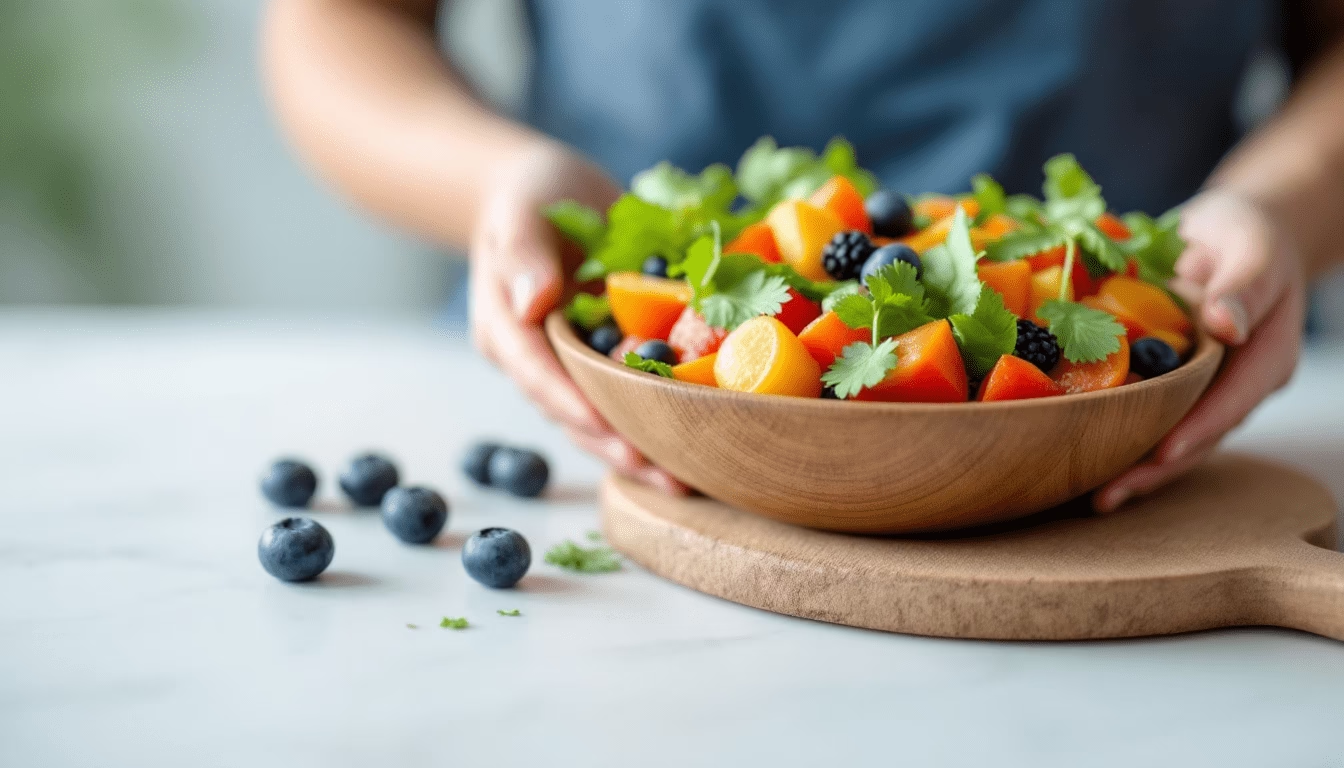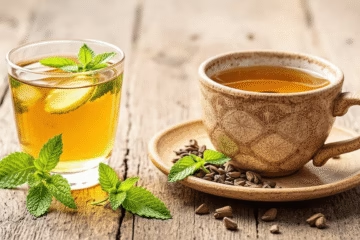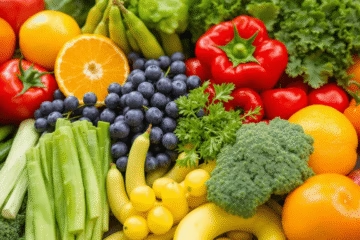Are you struggling to get a good night’s sleep? If so, you may want to consider adjusting your diet to include foods that promote melatonin production. Melatonin is a hormone that regulates sleep-wake cycles, and consuming certain foods can help increase its production in the body. In this article, we will explore how to increase melatonin, the best foods for melatonin production, including those rich in tryptophan, high in antioxidants, and other nutrients that support a good night’s sleep. We will also provide tips on how to incorporate these foods into your diet for better sleep. So, let’s dive in and discover the key to a restful night’s sleep!
Sleepon is the ultimate game-changer in the world of sleep management!
Foods rich in tryptophan, a precursor to melatonin production
Tryptophan is an essential amino acid that plays a crucial role in the production of melatonin. It is a precursor to serotonin, a neurotransmitter that helps regulate mood and sleep. Incorporating foods that are high in tryptophan into your diet can support the production of melatonin and promote better sleep.
Some excellent sources of tryptophan include turkey, chicken, eggs, dairy products, nuts, seeds, and legumes. These foods not only provide tryptophan but also contain other nutrients that are beneficial for overall health. For example, almonds and walnuts are not only rich in tryptophan but also provide magnesium, a mineral that helps relax muscles and promote sleep.
Similarly, chickpeas and lentils are not only high in tryptophan but also rich in fiber, which aids digestion and promotes a feeling of fullness, leading to a more restful sleep. By incorporating these tryptophan-rich foods into your diet, you can enhance melatonin production and improve the quality of your sleep.
Get Your Special Offer Before It Ends!

Foods high in antioxidants that support melatonin production
Antioxidants play a crucial role in protecting the body from oxidative stress and promoting overall health. When it comes to melatonin production, consuming foods rich in antioxidants can be beneficial. Antioxidants help to neutralize harmful free radicals that can interfere with melatonin synthesis.
Incorporating foods such as berries, especially blueberries and tart cherries, into your diet can provide a significant boost of antioxidants. These fruits are not only delicious but also packed with vitamins, minerals, and phytochemicals that support melatonin production.
Additionally, dark chocolate and green tea are excellent sources of antioxidants that can help promote a healthy sleep cycle. Dark chocolate contains flavonoids, which have been shown to increase melatonin levels, while green tea contains theanine, an amino acid that can improve sleep quality. By including these antioxidant-rich foods in your diet, you can support melatonin production and improve your sleep patterns.
Go2Sleep 3: The Ultimate Sleep Companion
The Go2Sleep 3 revolutionary home sleep monitor is designed to monitor and improve your sleep quality with its comfortable, widened ring holder and advanced algorithms for precise monitoring of blood oxygen, heart rate, and blood glucose.
Other nutrients and foods that promote melatonin production
In addition to tryptophan and antioxidants, other nutrients and foods can further support melatonin production and improve sleep. One such nutrient is vitamin B6, which is involved in the synthesis of melatonin. Foods rich in vitamin B6 include bananas, avocados, and fish such as salmon and tuna. These foods not only provide vitamin B6 but also contain other beneficial nutrients like magnesium and omega-3 fatty acids, which can help promote relaxation and better sleep.
Additionally, tart cherry juice is a natural source of melatonin and can aid in improving sleep quality. Herbal teas like chamomile and valerian root are also known for their calming properties and can help promote a restful night’s sleep. By incorporating these nutrient-rich foods and beverages into your diet, you can further enhance melatonin production and support a healthy sleep cycle.
Tips for incorporating these foods into your diet for better sleep
Now that you know about the foods that promote melatonin production, it’s time to find ways to incorporate them into your daily diet for better sleep. Here are some tips to help you get started:
- Plan your meals: Make a conscious effort to include tryptophan-rich foods such as turkey, eggs, and nuts in your meals. Incorporate berries, dark chocolate, and green tea as snacks or desserts.
- Create balanced meals: Combine tryptophan-rich foods with sources of vitamin B6, antioxidants, and other nutrients. For example, pair salmon with a side of steamed broccoli or enjoy a banana with a handful of almonds.
- Try new recipes: Explore different recipes that incorporate these sleep-promoting foods. For instance, make a smoothie with tart cherries, yogurt, and a sprinkle of dark chocolate, or prepare a grilled chicken salad with mixed berries.
- Drink tart cherry juice: Consider having a glass of tart cherry juice before bedtime to naturally boost melatonin levels.
- Replace evening snacks: Instead of reaching for sugary or processed snacks before bed, opt for a small handful of nuts or a cup of chamomile tea.
By implementing these tips, you can easily incorporate these melatonin-boosting foods into your diet and improve your sleep quality. Incorporating foods that promote melatonin production into your diet can have a significant impact on your sleep quality. By consuming foods rich in tryptophan, antioxidants, and other sleep-supporting nutrients, you can enhance melatonin synthesis and regulate your sleep-wake cycle.
Remember to plan your meals, create balanced dishes, and try new recipes that incorporate these sleep-promoting foods. Additionally, consider drinking tart cherry juice or herbal teas like chamomile and valerian root to further support melatonin production. Making these dietary changes can have a positive effect on your overall sleep patterns and contribute to a restful night’s sleep. So, start incorporating these melatonin-boosting foods into your daily routine and enjoy the benefits of improved sleep and overall well-being.
Incorporating foods that promote melatonin production into your diet can be a game-changer for achieving better sleep. By focusing on foods rich in tryptophan, antioxidants, and other sleep-supporting nutrients, you can optimize melatonin synthesis and regulate your sleep-wake cycle. Remember to plan your meals, create balanced dishes, and explore new recipes that incorporate these sleep-promoting foods.
Additionally, consider incorporating tart cherry juice or herbal teas like chamomile and valerian root into your routine for an added boost. By making these dietary adjustments, you can experience improved sleep quality, enhanced relaxation, and overall well-being. However, it’s important to note that diet alone is not the only factor influencing sleep. Creating a bedtime routine, practicing good sleep hygiene, and managing stress are also essential.
So, combine these dietary changes with other healthy sleep habits for maximum benefits. Prioritize your sleep, nourish your body with the right foods, and enjoy the transformative power of a restful night’s sleep.
The top foods that naturally boost melatonin production and improve sleep quality
- Blueberries are a delicious and nutritious option, as they contain high levels of antioxidants that aid in melatonin production.
- Eating nuts, such as almonds and walnuts, can provide a good source of melatonin due to their high magnesium content.
- Cherries, especially tart cherries, are a great natural source of melatonin, offering a tasty way to promote a sound sleep.
- Incorporating foods like oats and whole grains into your diet can help stimulate melatonin production, thanks to the presence of tryptophan.
- Rich in omega-3 fatty acids, salmon not only promotes heart health but also boosts melatonin production.
- Drinking a warm cup of chamomile tea before bed can aid in melatonin production, leading to a calm and restful sleep.
- Consuming bananas can contribute to melatonin production, as they contain both tryptophan and magnesium.
- Kiwi fruits are packed with vitamins and minerals that support melatonin synthesis, making them a perfect pre-bedtime snack.
- Dark chocolate, in addition to its other health benefits, can also promote melatonin production, making it a delectable choice for a sweet sleep aid.
Insights:
- Foods rich in tryptophan support melatonin production: Foods high in tryptophan, such as turkey, eggs, nuts, and legumes, help increase melatonin by serving as precursors to serotonin, which contributes to better sleep.
- Antioxidant-rich foods enhance melatonin synthesis: Berries, dark chocolate, and green tea contain antioxidants that neutralize free radicals, supporting healthy melatonin production and improving sleep quality.
- Other nutrients boost melatonin levels and sleep quality: Vitamins like B6, along with foods such as bananas, avocados, and fatty fish, as well as tart cherry juice and herbal teas, promote melatonin synthesis and relaxation.
- Practical tips for incorporating sleep-promoting foods into diet: Plan meals with tryptophan-rich foods, create balanced dishes, try new recipes, and consider drinking tart cherry juice or herbal teas before bed to naturally boost melatonin.
- Top foods naturally enhancing melatonin production and sleep quality: Blueberries, nuts, cherries, oats, salmon, bananas, kiwi, and dark chocolate are effective, delicious options that stimulate melatonin and support restful sleep.
References:
- Medic, Goran, et al. “Short- and Long-Term Health Consequences of Sleep Disruption.” Nature and Science of Sleep, vol. 9, 2017, pp. 151–61.
- Worley, Susan L. “The Extraordinary Importance of Sleep”. The Extraordinary Importance of Sleep, 2018. NCBI.
- Chaput, Jean-Philippe, et al. “Sleeping Hours: What Is the Ideal Number and How Does Age Impact This?” Nature and Science of Sleep, vol. 10, 2018, pp. 421–30.
- ASA Authors & Reviewers: Sleep Physician at American Sleep Association. Reviewers and Writers Board-certified sleep M.D. physicians, scientists, editors, and writers for ASA. “What Is Sleep & Why Is It Important for Health?” American Sleep Association, 27 July 2021.
- “Sleep Tips: 6 Steps to Better Sleep.” Mayo Clinic, 17 Apr. 2020.
- Suni, Eric. “What Happens When You Sleep?” Sleep Foundation, 30 Oct. 2020.
- Mandal, Ananya, MD. “What Is Sleep?” News-Medical.Net, 30 Jan. 2020.
Body, Mind, And Soul For A Fulfilled Life!





